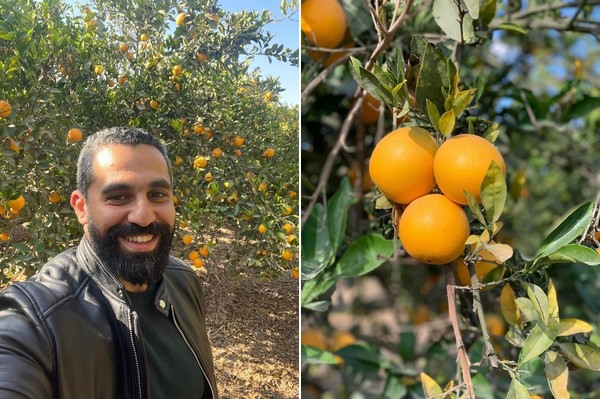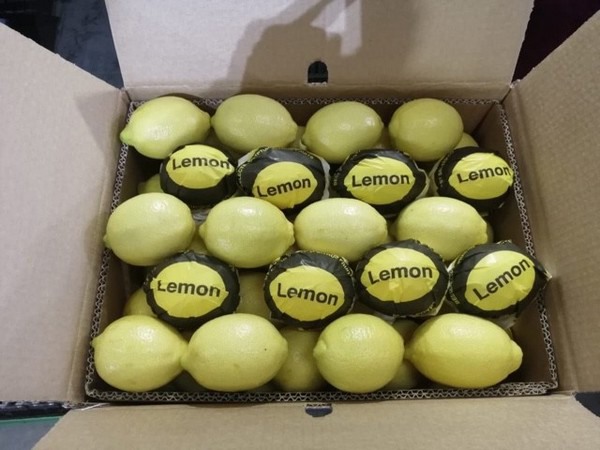It will be a true battle for the larger sized citrus this season. According to Mostafa Ali, commercial manager for Egyptian fresh produce exporter Rula for Land Reclamation, there simply aren’t enough larger sized citrus fruits to accommodate every market.
“The Egyptian citrus production has been good and heavy this season, but we’re facing some issues when it comes to the sizes of our citrus. When we take a closer look at the Navel production, we can see that there is a rough shortage on the larger sized Navels. This would be the 42, 48, 56 and 64 sizes. On the other hand, we’re seeing a lot of availability for the 72, 80, 88 and 100 sizes. This naturally means there’s a strong demand for the larger sizes and Egypt isn’t the only country that doesn’t have enough of these to offer. The Spanish production is also seeing a shortage when it comes to the big sizes this year.”
There is still hope for the Valencia crop to have larger sizes, but when looking at it realistically, Ali predicts the situation will be the same for these oranges. “It won’t come as a surprise we’re constantly getting inquiries for the larger sized Navels, but we try to do our best to explain to the current situation to any buyers that contact us. In my opinion, buyers will simply have to adjust and adapt to the current situation, just like we’re doing. We have to sell and ship all the sizes that we have available, not just the ones that are in great demand. Hopefully the Valencia oranges will not have similar issues, but if we’re honest, it will probably be the same for those oranges.”

Lemons were in strong demand just ahead of Christmas, and demand has been very strong for mandarins, as Morocco is also dealing with a shortage for their mandarins: “For the Egyptian lemons, there is a high demand in general, but it is especially strong from the far East countries, as well as the European markets. It has to be said that the European buyers were mostly asking for lemons to quickly sell them before Christmas time, so demand has slowed down slightly in the New Year. There will be opportunities for the mandarins from Egypt this year though, across all the varieties we cultivate. Although we will not have a super large crop this year, there will still be strong demand, especially since there’s a shortage on the Moroccan mandarins this season.”
To sell all of these smaller sized oranges and mandarins, Egyptian exporters will have to look elsewhere. Ali feels strongly about the potential of the Philippines as an export market. The Egyptian government recently set the protocols in place to allow trade to the Asian country: “On my opinion other major opportunities this year can be found in the Far-East countries, as well as the European markets. Although the European markets will keep asking for more larger sized citrus, there are also new markets to check out. Egypt finalized the protocol with the Philippines in December of 2022, and I feel that this market will be a good opportunity for Egyptian citrus exporters.”

As Russia has been one of the major importers of Egyptian produce, the impact of the war has been felt heavily by the produce traders. However, Ali claims that exports towards the Russian market has been increasing of late, although volumes are not on the same level as they were before the war.
“The war has been a terrible situation and the impact has been huge for Egyptian produce exporters. It’s been improving since the end of 2022 though, as Egyptian exporters have started to ship to Russia again, as well as to Belarus through Russia, but the volumes are nowhere close to what they were before the war with Ukraine started. However, the Russian importers have been asking weekly for Egyptian citrus, so things could still improve as time goes on. We hope that the war will finally come to an end, so we can continue doing business as it was before the war broke out.”
The Egyptian economy has not been hit as hard by inflation as the European countries, but Ali states they still see prices increase across all the parts of their operation. It’s troubling for them, as it means they’re at a disadvantage when compared to some of the competition.
"Dealing with competition is getting more difficult, as inflation and the situation with the Egyptian currency will be reflected on everything in the operational process. Everything has gotten more expensive over 2022, no costs are lower than they were before. This isn’t just the case for citrus, but anything that is agricultural. Raw materials, such as fertilizer, but also workers, packing materials and shipping have all become more expensive. Therefore the situation is not easy at all, and the risk of raising the prices is a drop in demand, so it’s a fine balance that needs to remain intact. Some of the competitors are dealing with similar issues, but not all of them. We place our faith in the quality that Egyptian citrus can provide,” Ali concludes.
For more information:
Mostafa Ali
Rula for Land Reclamation
Tel: +201007350313
Email: [email protected]
www.rulafarms.com









